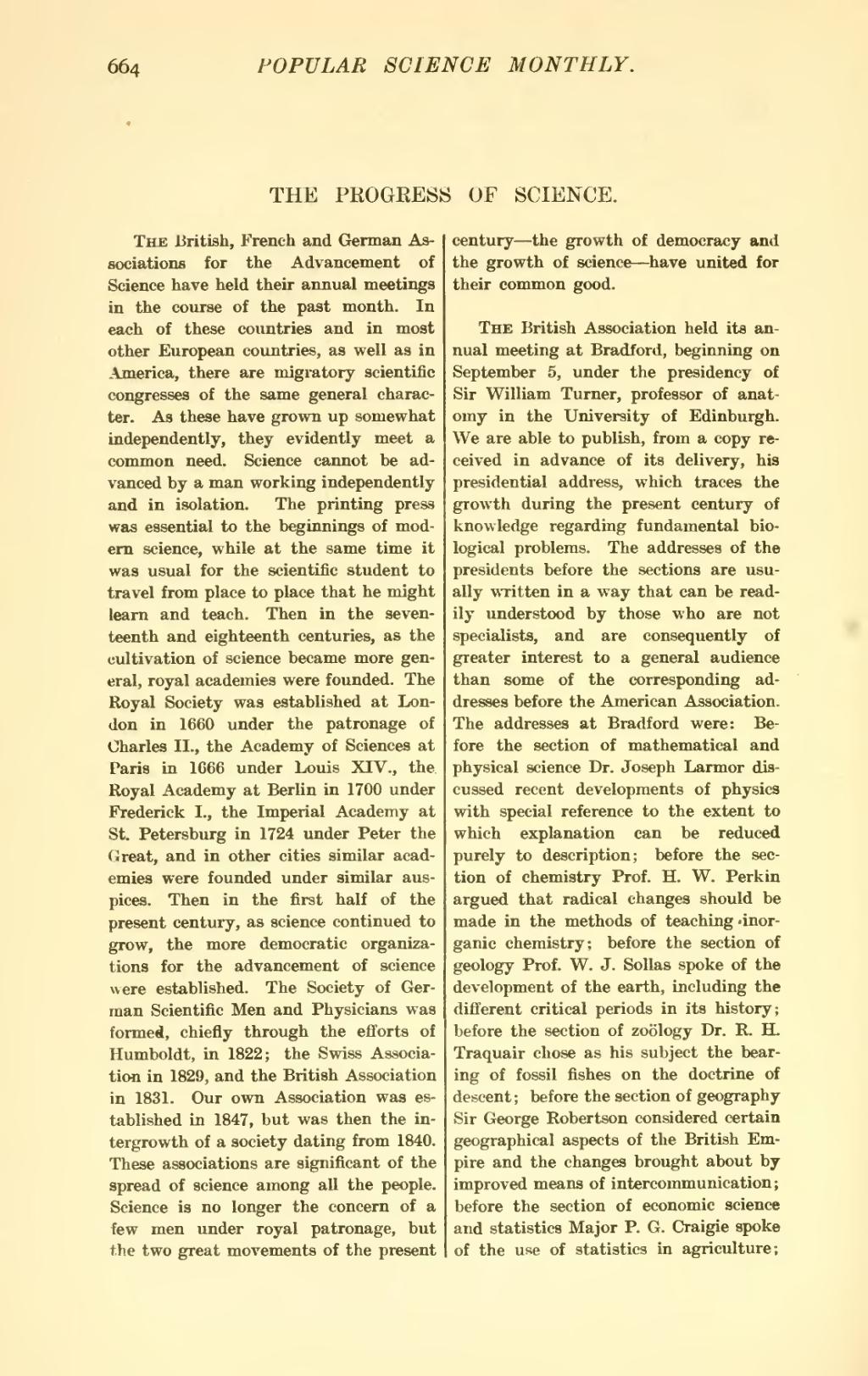The British, French and German Associations for the Advancement of Science have held their annual meetings in the course of the past month. In each of these countries and in most other European countries, as well as in America, there are migratory scientific congresses of the same general character. As these have grown up somewhat independently, they evidently meet a common need. Science cannot be advanced by a man working independently and in isolation. The printing press was essential to the beginnings of modern science, while at the same time it was usual for the scientific student to travel from place to place that he might learn and teach. Then in the seventeenth and eighteenth centuries, as the cultivation of science became more general, royal academies were founded. The Royal Society was established at London in 1660 under the patronage of Charles II., the Academy of Sciences at Paris in 1666 under Louis XIV., the Royal Academy at Berlin in 1700 under Frederick I., the Imperial Academy at St. Petersburg in 1724 under Peter the Great, and in other cities similar academies were founded under similar auspices. Then in the first half of the present century, as science continued to grow, the more democratic organizations for the advancement of science were established. The Society of German Scientific Men and Physicians was formed, chiefly through the efforts of Humboldt, in 1822; the Swiss Association in 1829, and the British Association in 1831. Our own Association was established in 1847, but was then the intergrowth of a society dating from 1840. These associations are significant of the spread of science among all the people. Science is no longer the concern of a few men under royal patronage, but the two great movements of the present century—the growth of democracy and the growth of science—have united for their common good.
The British Association held its annual meeting at Bradford, beginning on September 5, under the presidency of Sir William Turner, professor of anatomy in the University of Edinburgh. We are able to publish, from a copy received in advance of its delivery, his presidential address, which traces the growth during the present century of knowledge regarding fundamental biological problems. The addresses of the presidents before the sections are usually written in a way that can be readily understood by those who are not specialists, and are consequently of greater interest to a general audience than some of the corresponding addresses before the American Association. The addresses at Bradford were: Before the section of mathematical and physical science Dr. Joseph Larmor discussed recent developments of physics with special reference to the extent to which explanation can be reduced purely to description; before the section of chemistry Prof. H. W. Perkin argued that radical changes should be made in the methods of teaching 'inorganic chemistry; before the section of geology Prof. W. J. Sollas spoke of the development of the earth, including the different critical periods in its history, before the section of zoölogy Dr. R. H. Traquair chose as his subject the bearing of fossil fishes on the doctrine of descent; before the section of geography Sir George Robertson considered certain geographical aspects of the British Empire and the changes brought about by improved means of intercommunication; before the section of economic science and statistics Major P. G. Craigie spoke of the use of statistics in agriculture;
